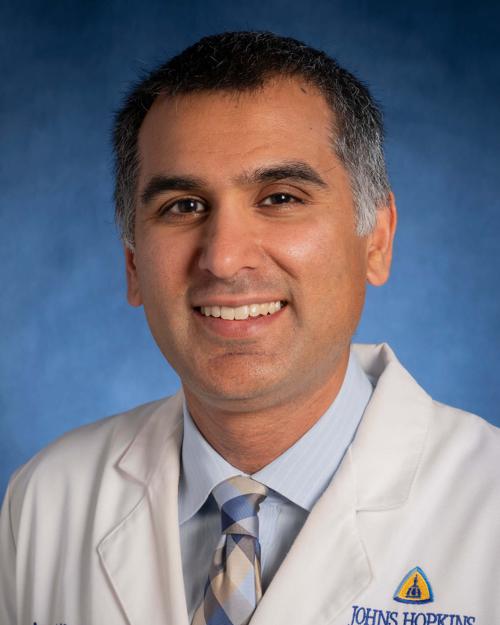-
Russell Hales, MD

- Director, Thoracic Oncology Multidisciplinary Program
- Associate Professor of Clinical Radiation Oncology and Molecular Radiation Sciences
-
K. Ranh Voong, MD MPH

- Program Director of the Department of Radiation Oncology Residency Program
- Assistant Professor of Radiation Oncology and Molecular Radiation Sciences
Gastrointestinal Cancers
Therapies such as radiation and chemotherapy are given to patients with tumors of the esophagus and stomach prior to surgery to improve the effectiveness of surgery. As part of a multidisciplinary team, radiation oncologists at Johns Hopkins use deep expertise in radiation therapy, sophisticated planning platforms and innovative clinical trials to elevate the standard of care for patients with these cancers.
Our Team of Esophageal and Stomach Cancer Specialists
Our Esophageal and Stomach Cancer Treatments
IMRT is the primary form of radiation used to treat esophageal cancer. IMRT delivers targeted radiation doses to the tumor site, patterned to match the shape of the tumor through modulating the intensity of the radiation beams.
Proton Therapy is a form of targeted radiation treatment that uses energy from positively charged particles called protons. Protons very precisely zero in on tumors, delivering most of their cancer-fighting energy directly to cancer cells while minimizing radiation exposure and damage to neighboring healthy tissue and organs. The therapy reduces the risk of late effects after treatment.
Learn more about The Johns Hopkins Gastric Cancer Center.
Learn more about current research and clinical trials for esophageal cancer.

